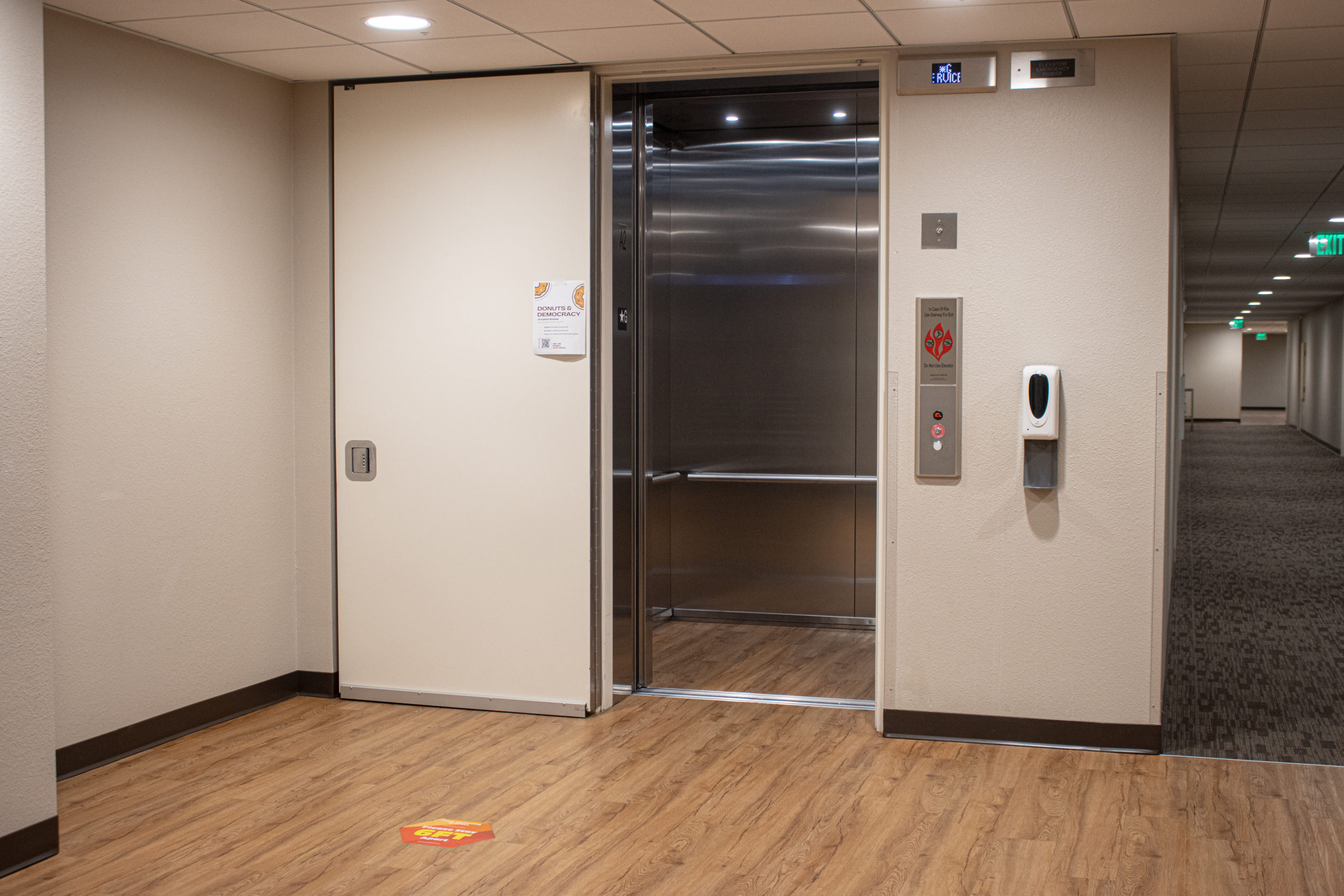Weeks after student advocacy group Sexual Violence Free Stanford (SV Free) hung “Stanford Protects Rapists” posters in EVGR-A, Residential Education (ResEd) removed all student-made posters, citing the postering policy in the residence agreement.
The policy states that students cannot hang posters in living spaces unless they are on bulletin boards. The lack of bulletin boards in EVGR-A other than in laundry rooms prevents students from postering, including in hallways and near elevators — both high traffic areas where student groups usually advertise their events.
At the start of fall quarter, SV Free hung over 500 posters in EVGR-A, according to the group, with messages such as “Stanford Protects Rapists” and “ResEd Protects Rapists” to raise awareness about concerns of ResEd allegedly mishandling of sexual assault cases. Soon after, the University criticized the flyering, calling it “harmful.”
“Anonymous messaging like this, including fictionalized quotations, is inappropriate and antithetical to the type of supportive environment we are trying to cultivate and sustain at Stanford,” wrote Student Affairs spokesperson Pat Harris in a statement at the time of the postering.
According to Harris, all posters were taken down due to a postering policy in the residence agreement which stipulates that professional and student staff are allowed to hang posters only on bulletin boards in residential halls or on their personal doors. Harris declined to comment on the specific situation regarding SV Free posters.
“Advertising and publicity materials (i.e. fliers, posters and banners) can be posted only on bulletin boards and only by members of the Stanford community,” the policy states.
The leaders of SV Free alleged in a statement to The Daily that the removal of posters is selective enforcement of a postering policy that is not clearly communicated to students. Though the postering policy is in the residence agreement, advocates do not think it is effective enough to communicate the policy to the student body. They said that the primary issue is the lack of transparency regarding the University’s flyering policy.
“They simply removed the posters without public accountability or discourse,” wrote SV Free leaders Ari Gabriel ’23, Kirsten Mettler ’23 and Sofia Scarlat ’24 in a statement. Gabriel has written for The Daily and Mettler is a section editor.
Harris wrote to The Daily that University policies are enforced fairly and that the University takes an “educational approach” to ensure that students understand the policy and why a violation occurred. Harris did not specify whether the University had reached out to SV Free to discuss the removal.
EVGR-A is home to over 700 undergraduate students. Unlike other dorms on campus, EVGR-A does not have any bulletin boards in high-traffic areas except for laundry rooms. Student groups, including SV Free, have been primarily hanging up posters in and around elevators; however, those posters have since been taken down.
Residential & Dining Enterprises (R&DE) Executive Director Jocelyn Breeland wrote that the postering policy has not changed in a number of years and “applies regardless of the content of the document being posted.”
Law professor and survivor advocate Michele Dauber said that she always tells her students to follow Stanford’s free speech policies on campus, even though she thinks they are difficult to find and interpret.
“That being said, if Stanford spent half the time trying to stop rapists that it spends trying to stop criticism of Stanford, the campus would be a lot safer,” she wrote.
To SV Free, this is just another example of Stanford attempting to silence survivors, referencing the level of public support it took in 2019 to have Chanel Miller’s plaque installed. They alleged the postering policy is being enforced in a targeted manner, given that posters in EVGR-A only began to be taken down after the University criticized their posters.
“These posters refer to specific incidents that have already been reported to Title IX, but have yet to receive a resolution after 18 months,” SV Free wrote in their statement to The Daily. The lack of appropriate response is what prompted them to speak about this issue, they wrote.
Harris wrote on behalf of the SHARE Title IX Office that all Title IX cases are less than a year old.
According to SV Free, this is not only an issue of free speech, but also an issue of safety: “Organizations like the YWCA or SHARE often use flyering in order to connect with survivors and provide them with critical resources, like reporting logistics, counseling options and more,” they wrote. “This flyering policy undermines a critical point of outreach for getting support to survivors.”
In light of this, SV Free is now trying a different strategy to spread awareness about sexual violence in EVGR-A by asking students hang posters on their own doors.On Oct. 18, the group announced in a statement that they have filed a report with the U.S. Office of Civil Rights (OCR) against ResEd for “systemic, institutional level problems in their mechanisms for sexual violence prevention.” The University will “fully cooperate” if contacted by OCR, Harris wrote to The Daily on behalf of Student Affairs.
